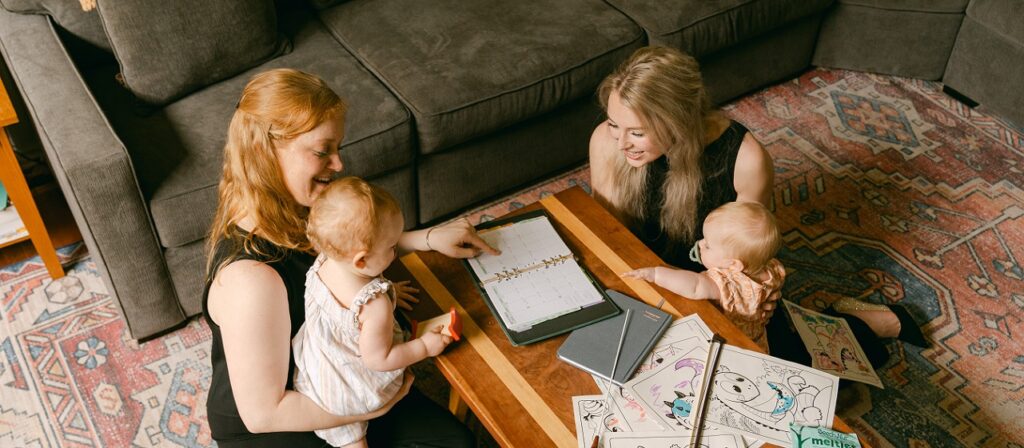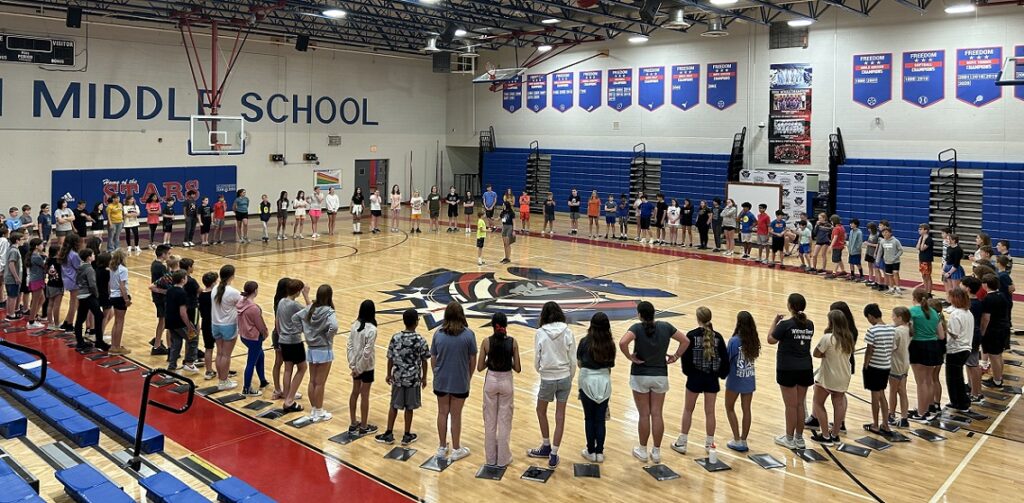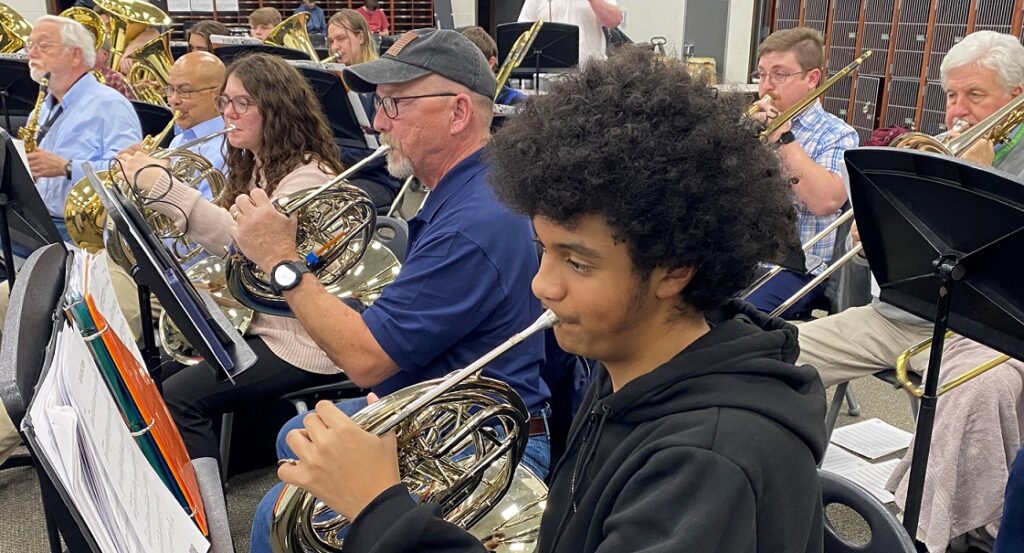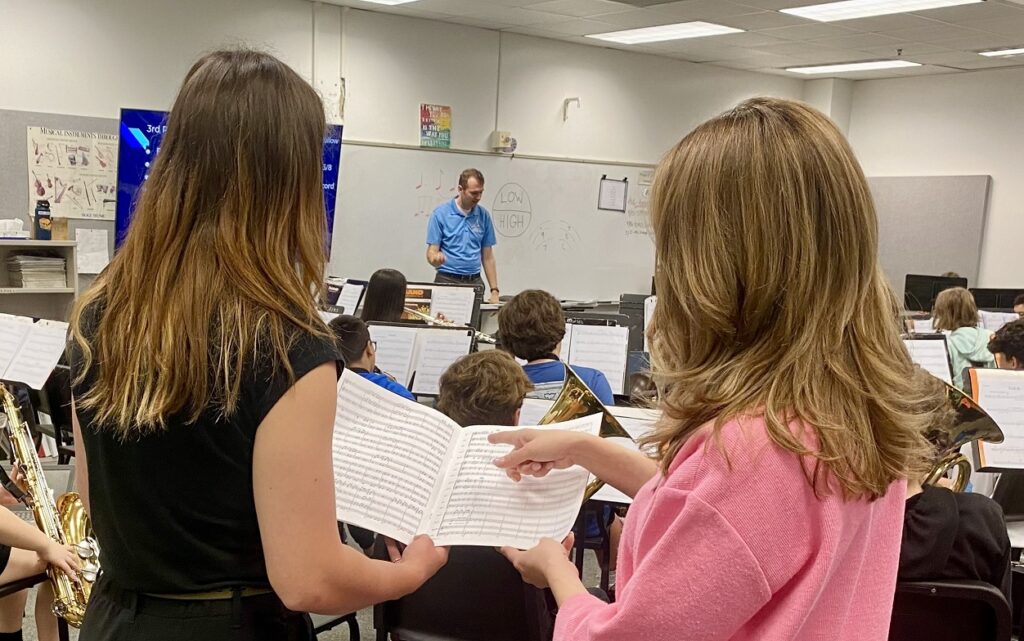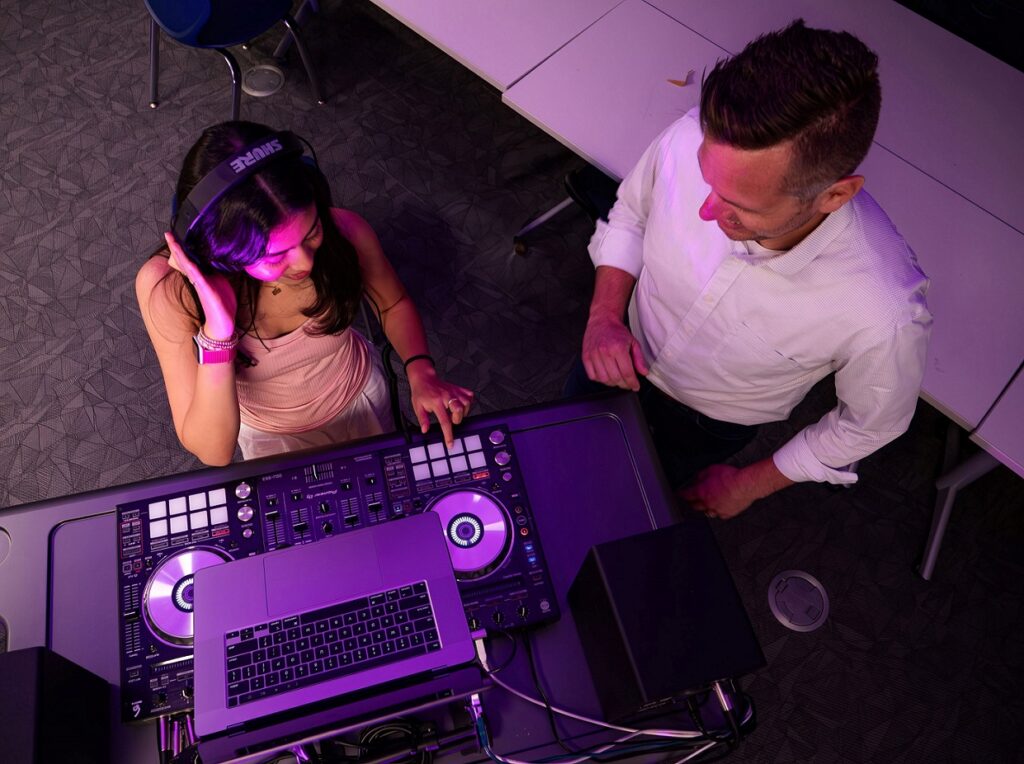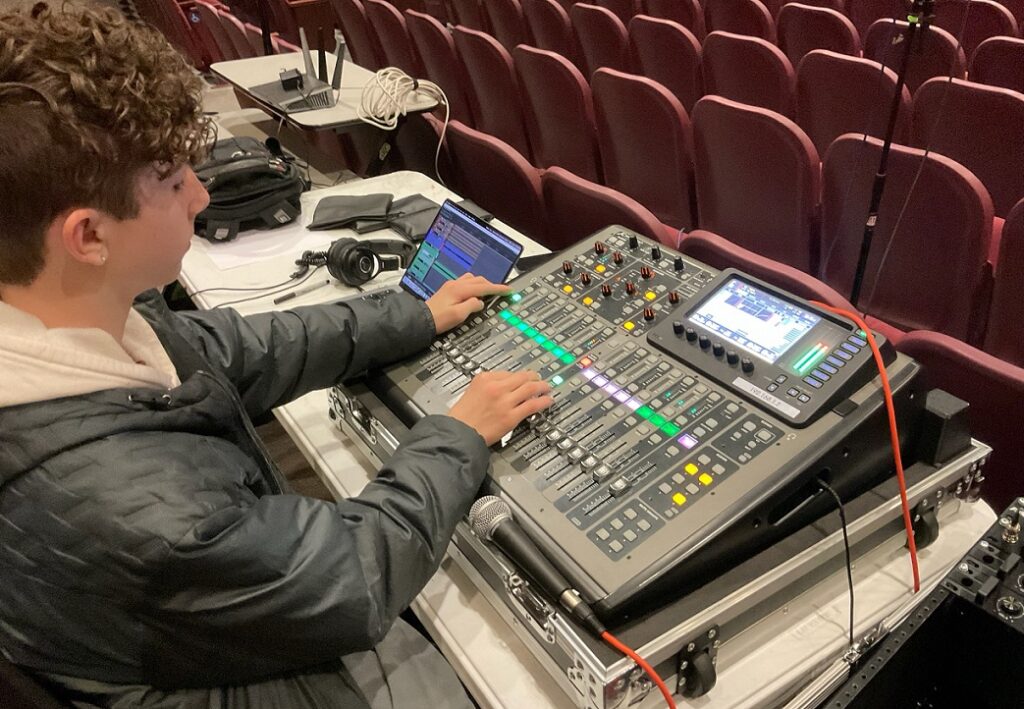Tagged Under:
Play on Philly: A Model of Excellence
Underserved pre-K-12 students in Philadelphia can receive classical, tuition-free music education that balances fun and high expectations — and the results are phenomenal.
Andrés González, a Venezuela native, fondly recalls a wonderful compliment he received from the father of one of his young trumpet players: “I’m always surprised about how you always balance the fun and high expectations.”
The father had a good point, says González, music director of Play On Philly (POP), which provides free music education for underserved children in Philadelphia. Yes, music should bring pleasure to the players and listeners, but getting it right is challenging work. Proper music education must incorporate both elements.
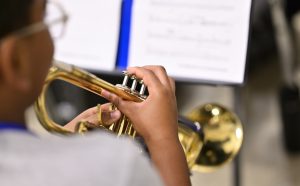
“It’s a balance between fun and high expectations,” says González, who has lived in the City of Brotherly Love for five years. “As a musician, it’s one of the hardest things to find. We want them to have a fun experience, but we also want them to feel the success of what they’re doing.”
Combining enjoyment with rigorous practice is one of González’s successful approaches to teaching music through Play On Philly, which was founded in 2011 and provides group lessons to children in pre-K to seniors in high school.
“This cannot be just a social program,” González says. “If we give access to something, it must be something good. If students don’t feel good playing an instrument, they will most likely quit or switch to a different thing.”
Music Instruction Before, During and After School
POP teaching artists provide intensive instrument instruction to students at partner schools before and after school, four to five days a week, up to about eight hours a week. According to González, no auditions are needed to enroll; any student who is interested can participate if they attend partner schools. POP also offers students more than 25 performance opportunities in the community each year.
“We have 230 pre-K through 12th graders who receive eight hours a week of musical training,” González says. “Those kids learn very quickly how to play really well.”
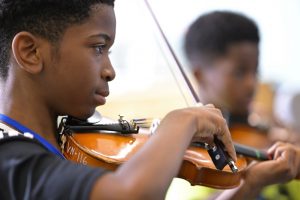
The schools that partner with Play On Philly are mostly in West Philadelphia, which is predominantly a low-income area with many Title I schools. Some schools in West Philadelphia and Center City also offer POP’s in-school preparatory programming to 237 pre-K through 1st graders and high schoolers three to five days a week. These schools have limited resources and have faced funding cuts that make music programs inaccessible, González says.
With tuition-free group instruction in a craft that is highly enjoyable, students develop high-level musical knowledge and performance that bring joy to their daily lives. “We believe that that’s a way to show success and connect with the community we serve,” he says.
“We don’t teach one-on-one,” González says. “The idea is to maximize our resources and provide access to as many kids as we can.”
González focuses on orchestral-type music from classical composers like Bach, Beethoven and Mozart to living composers such as Iman Habibi, Kerwin Young, Erika Oba, Kevin Day and others.
New and Special Programs
Play On Philly is currently implementing a new program where mixed age groups come together and play in the POP Children’s Orchestra. Over 200 students ranging in age from grade school to teenagers play rotating parts in Play On Philly concerts.
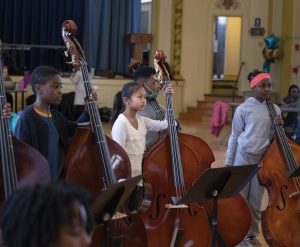
“The students are playing in big groups, and it’s making them feel part of their huge community,” González says. “It’s the same [piece of] music with different challenges.”
González plans to grow this multilevel orchestra program. Another goal is to provide more overall access to POP to additional families. “I believe that what we do is pretty amazing, and I wish more families could get the benefits of this program,” he says.
Another special Play On Philly program that he emphasizes is the Marian Anderson Young Artist Program, created in memory of the popular Black singer from Philadelphia. Students can apply to this competitive program, which gives accepted students weekly, free private lessons and access to better instruments, as well as college and career counseling.
“We wanted to honor her legacy,” González says.
Proven Results
Learning music through Play On Philly has a proven effect on overall academic achievement, says González, who was recognized as a 2023 “40 Under 40” music educator. Since 2012, POP has partnered with WolfBrown, an independent research firm to prove the impact of the POP’s program on the students served. Results of a 2017 study (Holochwost, et. al.) showed that participating POP students score an average of 10 points higher on standardized tests than their peers.
“It’s been proven that those kids improve within their schools and across different subjects as long as they stay with us,” González says. “Music can make you feel relaxed and think about other stuff. But it is scientifically proven that those kids do better in school and with executive function that helps to improve their life skills.”
Kids who practice music every day develop patience, which is a virtue that the Play On Philly staff members want the students to develop, he says. It can help them accomplish greater goals.
“People who want to be leaders in the future are seeing the world through the lens of music,” González says.
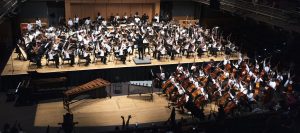
Latin American Origins
González models his teaching style after the renowned social and musical program for youths called El Sistema founded by his mentor Maestro José Antonio Abreu 48 years ago in Venezuela. González began his musical studies at the age of just 2 in the Jacinto Lara Conservatory. A year later, he raised the baton to conduct “Ode to Joy” along with the Children’s Orchestra and Choir of the Lara State.
The founder of Play On Philly, Stanford Thompson, went to Venezuela as part of the Abreu fellows program and saw El Sistema in action, and it changed his life. While Thompson was in Venezuela, he met González and they became friends. González moved to Miami to be the Principal Trumpet for the Miami Symphony Orchestra, and later, Thompson offered him the job with POP.
Children in Venezuela learn all about classical music. However, students in America often do not learn about these music traditions because of the lack of music education programs in schools. Through Play On Philly’s classical-focused program, students will get exposure to classical composers that they may not have gotten otherwise, González says.
El Sistema, he says, is a “model of excellence where children can thrive.” And he aims to foster the same environment at Play On Philly.










